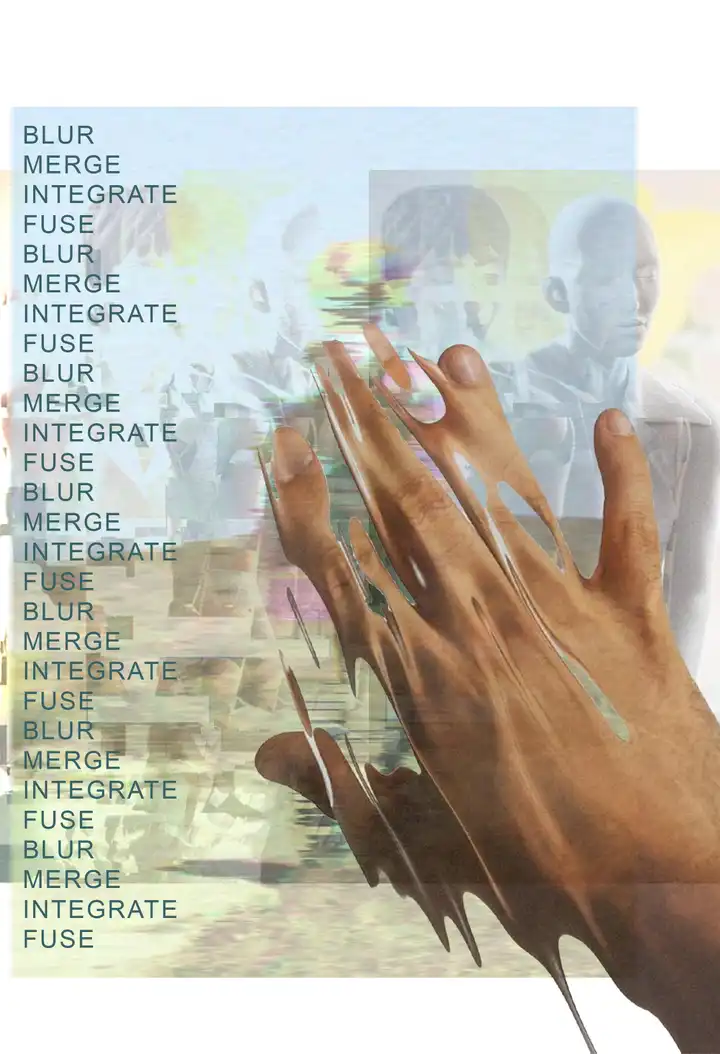
3 minute read
THE METAVERSE
by livvyjai
Having reflected on my 360 Campaign and consumer research, I expanded my knowledge on the future of the fashion industry and the future of the luxury market to review if my campaign was suitable for my consumer and a brand such as Chanel, a very traditional brand in an increasingly changing market. I came to a crossroads as to whether to expand upon my 360 campaign and push my campaign further into the Metaverse and use technology to create new experience. On the other hand I could change my initial ideas refraining from the huge step of placing a heritage brand into a virtual setting, yet maintaining the concept of my campaign looking for a new way to create a meaningful connection with Gen Z whilst providing them new experiences.
The conclusion of my 360 rested on the use of VR and the possibilities of the Metaverse reflecting on the opportunity’s technology could provide for a brand such as Chanel. I began by researching further into this as a viable campaign. Fashion is in no doubt moving quickly into more digital spaces, one being the Metaverse. Not yet fully defined, the Metaverse is said to be a ‘convergence of our physical and digital lives.’ (Brandon, 2021) It does not define one specific type of technology but instead, how we as consumers interact with technology in our daily lives. Fashion has been stepping further into the Metaverse over the last few years, with brands such as Gucci, Balenciaga and Burberry creating games, collaborating with gaming giants such as Fortnite, increasing their use of VR/AR, and producing virtual clothing. This suggests that brands are viewing the Metaverse as a vector for a new era of creativity, inclusivity, community and diversity within fashion. The Institute of Digital Fashion forecasts the Metaverse will see the ‘death of the superbrand,’ as we know it with many traditional brands relying heavily on their heritage, they will not be able to compete with the communities being created online and will therefore miss out on this economy. This suggested that stepping into the Metaverse may be a way for traditional brands to reengage with consumers, redefining their kinship. Furthermore, demand for fashion and luxury brands within the Metaverse is expected to grow from current low levels and result in extra sales for the industry that could reach $50 billion by 2030, according to Morgan Stanley. (Reuters, 2021)
Advertisement

WHY NOT?
However, it will take many years to establish which part, if any, of the Metaverse this income will stem from as the Metaverse itself is still in its infancy. From my research I found that 65% of Gen Z do not understand what the Metaverse is (Gen Z Designs, 2021). Due to the rapid rate at which the ‘Metaverse’ is expanding this statistic suggests that the Metaverse does not resonate with Generation Z. Encompassing almost everything from social media, to gaming, to fashion, ‘the fundamentals of [the Metaverse] haven’t been built out.’ (Hughes, 2022) This unknown further supports the reasoning behind Gen Z’s disconnect with the Metaverse.
Moreover, ‘not all Gen Z’s are currently into the metaverse, at least not the shopping-heavy, brand-owned one marketers talk about.’
(Student, Beans, 2022) This suggests that despite the fact that many opinions view the Metaverse as fashions next phenomenon, its longevity and success in fashion is uncertain making it a somewhat risky enterprise for brands. Due to this research, I concluded that placing Chanel fully into the Metaverse would not be the right step. Despite the apparent opportunities of the Metaverse, the ‘Metaverse’ itself
is not established, nor is it known when this may occur or its long-term impact. Furthermore, my research has shown that the Metaverse is not well recognised by Generation Z, a key motive for this campaign looking to create a new connection between this generation and luxury brands. Instead, traditional brands such as Chanel need a long-term solution and deeper understanding of the next consumer to prolong their relationship. Additionally, my campaign centred around experience, so, I decided that my campaign would not stray too far from Chanel’s traditional values and
priority of instore experience. It isn’t enough to build online, TikTok and Snap campaigns marketing must go further to understand the attitudes, beliefs and behaviours of each audience and speak with authenticity to creativity. (Talbot, 2021) Therefore, my campaign will take inspiration from this and embrace the need for creating something more tactile, authentic and valuable for Gen Z to connect to.










